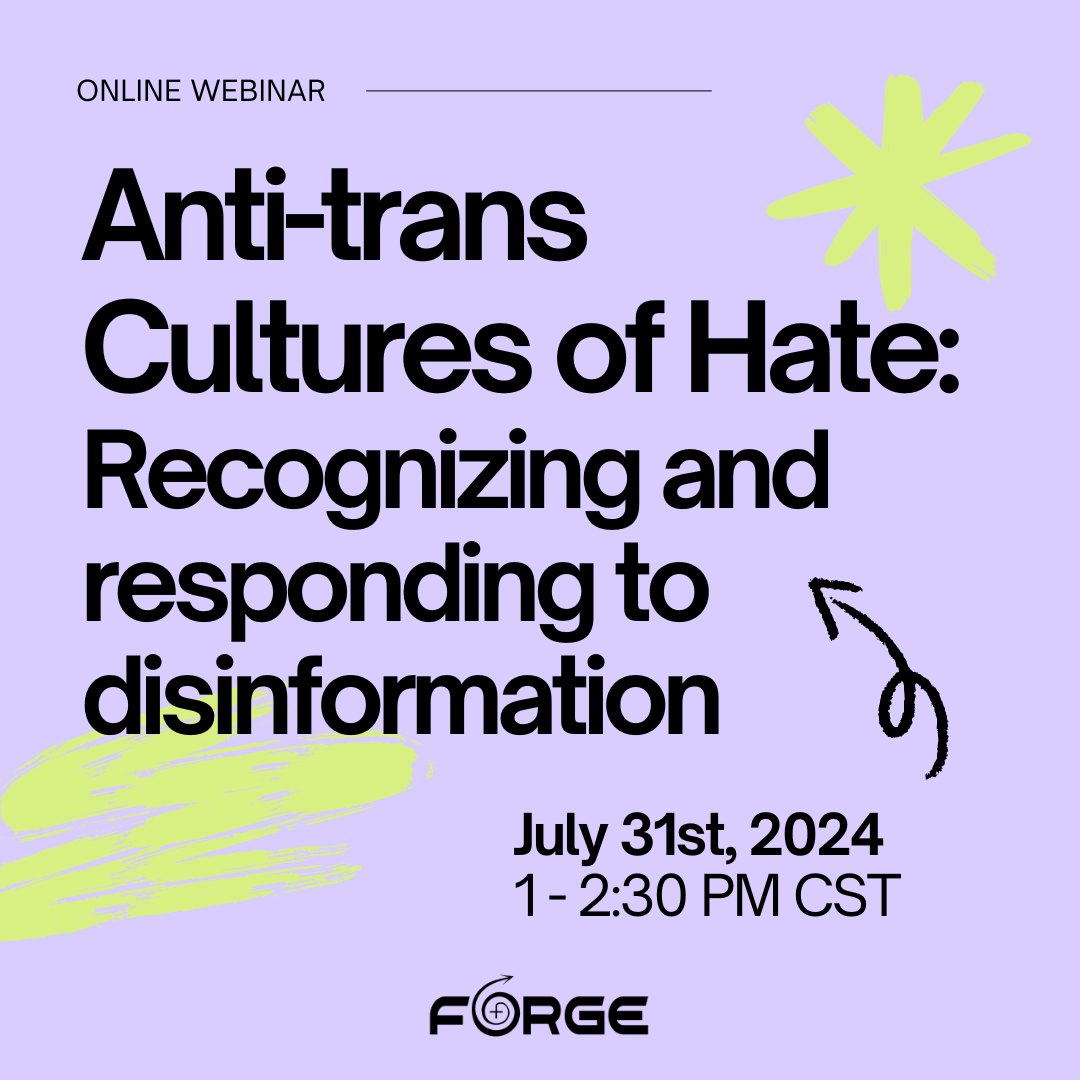Anti-trans Cultures of Hate: Recognizing and responding to disinformation
The “culture wars” can be an elusive concept. We might hear it talked about in the news or on social media, but what does it mean, and how does it relate to trans people? In this training, content will explore the “who/what/when/where/why” of anti-trans culture wars, as well as delve more deeply into understanding the tactics being used to perpetuate harm. A deeper discussion of the consequences and impacts will lead participants to gain a better understanding of media literacy and assessment strategies to determine if information is true or not. Attendees will leave with action steps on how to better support trans individuals, as well as how they can help shape and respond to anti-trans hate in the broader society.
Links and resources in this training
Date: July 31st, 2024
Time: 1 – 2:30 PM CST
This webinar will also be offered on August 20th, 2024. See the full list of hate violence webinars offered: https://forge-forward.org/hate-violence-webinar-series/
FORGE is offering CEUs for participation in this training. CEUs cost $20 per credit hour. The payment should be made to IVAT within 30 days of completion of the training. Instructions will be sent out to all participants requesting CEUs who complete the training. If you would like to register to receive CEU credits for this training, please indicate this on the registration form.
–
The Institute on Violence, Abuse and Trauma (IVAT) is approved by the American Psychological Association (APA) to sponsor continuing education for psychologists. Institute on Violence, Abuse, and Trauma (IVAT) maintains responsibility for this continuing education program and its content. The California Board of Behavioral Sciences (BBS) now accepts American Psychological Association (APA) continuing education credit for license renewal for LCSWs, LMFTs, LPCCs, and LEPs. Please contact your state board representative if you are not sure if the program will qualify under your regulations.
This project was supported by Grant No. 15PBJA-22-GG-04854-ADVA awarded by the Bureau of Justice Assistance. The Bureau of Justice Assistance is a component of the Department of Justice’s Office of Justice Programs, which also includes the Bureau of Justice Statistics, the National Institute of Justice, the Office of Juvenile Justice and Delinquency Prevention, the Office for Victims of Crime, and the SMART Office. Points of view or opinions in this document are those of the author and do not necessarily represent the official position or policies of the U.S. Department of Justice.

